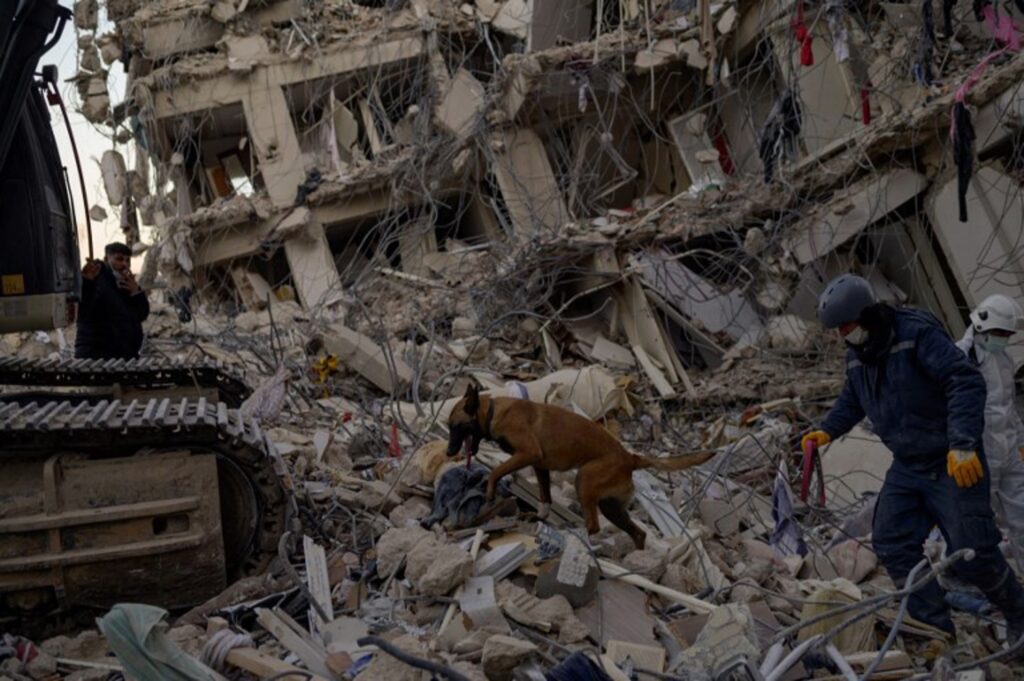A total of €7 billion were pledged by the international community at the International Donors’ Conference on Monday in Brussels, with ca €6 billion allocated for humanitarian aid, recovery and reconstruction in Turkey and €1 billon for mainly humanitarian aid to Syria.
The conference follows the devastating earthquakes in the two countries in beginning of February which claimed the lives of 50,000 people in Turkey and 5,000 people in northern Syria and caused widespread destruction. Access to the areas hit in Syria was delayed and the money pledged yesterday will be limited to humanitarian needs and early recovery because of the political crisis in the country.
The different allocation of aid to Turkey and Syrian reflects not only the different needs but also the lack of cooperation with the Assad regime in Damascus pending a political inclusive solution after the civil war in the country.
More than 60 delegations from the EU, its Member States and partners, including the UN, international and European financial institutions such as the EIB and the EBRD, attended the conference which was co-hosted by the European Commission and the Swedish EU-Presidency.
The total pledge amounts to €7 billion, of which €6.05 billion in grants and loans for Turkey and €950 million in grants for Syria. More than half of the total pledge, or €3,6 billion, comes from Team Europe (the EU, its member states and two European banks). According to a Commission source, each donor will be responsible for managing its part of the pledge.
The two co-hosts of the conference were proud and impressed with the outcome. "Today is a very good day for international solidarity,” said European Commission President Ursula von der Leyen at the concluding press conference on Monday evening. “We have shown to the world that we are supporting those in need. And we always stand by our partners.”
The Swedish Prime Minister, Ulf Kristersson, said that the goal of the conference had been achieved. ”Today's meeting had one important goal: to turn our words of condolences and solidarity into action. And provide a strong, efficient, and coordinated response to help the people affected by the devastating earthquakes.”
Earthquake resistant construction
The cost of the damage caused by the earthquakes exceeds widely the amount which was pledged at the donor conference. The preliminary damage assessment in Turkey demonstrates very large needs above USD 100 billion with a lot of damage to public infrastructure and residential buildings. The damage assessments have to be fine-tuned to needs assessments, according to a senior EU official.
Olivér Várhelyi, Commissioner for Neighbourhood and Enlargement, was satisfied with the pledged amount although it falls far below the needs. “The donors’ conference mobilised the global community in record time, in line with the scale of the tragic natural disaster.” He described the donor conference as the start of restoring life to normality and bring back hope.
“We will support in Turkey the early recovery and reconstruction, we will help building new houses, schools, hospitals, nurseries and infrastructure, so that normal life can return to the effected regions,” he said. EU has experience of earthquake resistant construction and will share its practice with Turkey. Buildings that were constructed in the affected areas with EU aid withstood the earthquake.
Turkey does not want to repeat the mistakes in the past when new buildings were constructed with lax enforcement of earthquake resistant building standards. The Turkish foreign minister Mevlüt Çavuşoğlu said that Turkey is going to building safer and more environmental-friendly and referred to a plan to construct 650,000 new apartments and units, partly funded by the Turkish state budget.
Tense Swedish-Turkish relations
Ulf Kristersson reminded that Sweden was indirectly affected by the earthquake because of the many migrants from the affected region Turkey living in Sweden. As most other EU member states, Sweden sent a rescue & search team and other aid to Turkey. In charge of the EU-Presidency, Sweden wanted also to show leadership and took the initiative to organizing the donor conference.
All this did not help Sweden in mending its tense relations with Turkey over its NATO application and Turkey has hardly recognized the Swedish support. A Swedish ambassador told The Brussels Time that there is no link between the donor conference and Sweden’s NATO application. “These are two separate issues.”
Asked at the press conference about his reaction, the Swedish Prime Minister did not express any disappointment over the Turkish decision to treat Sweden and Finland differently. “We wanted to join NATO together but we respect the Turkish decision. It’s good for regional security that Finland will become a NATO member.”
While Sweden has amended some of its anti-terrorism legislation, it still falls short of Turkey’s expectations, the Turkish foreign minister explained at the press conference. He was referring to a request for extradition of more than 100 persons who are accused of terrorism by Turkey but the recent burning of the Koran in Sweden has also angered Turkey and the Muslim world.
M. Apelblat
The Brussels Times

